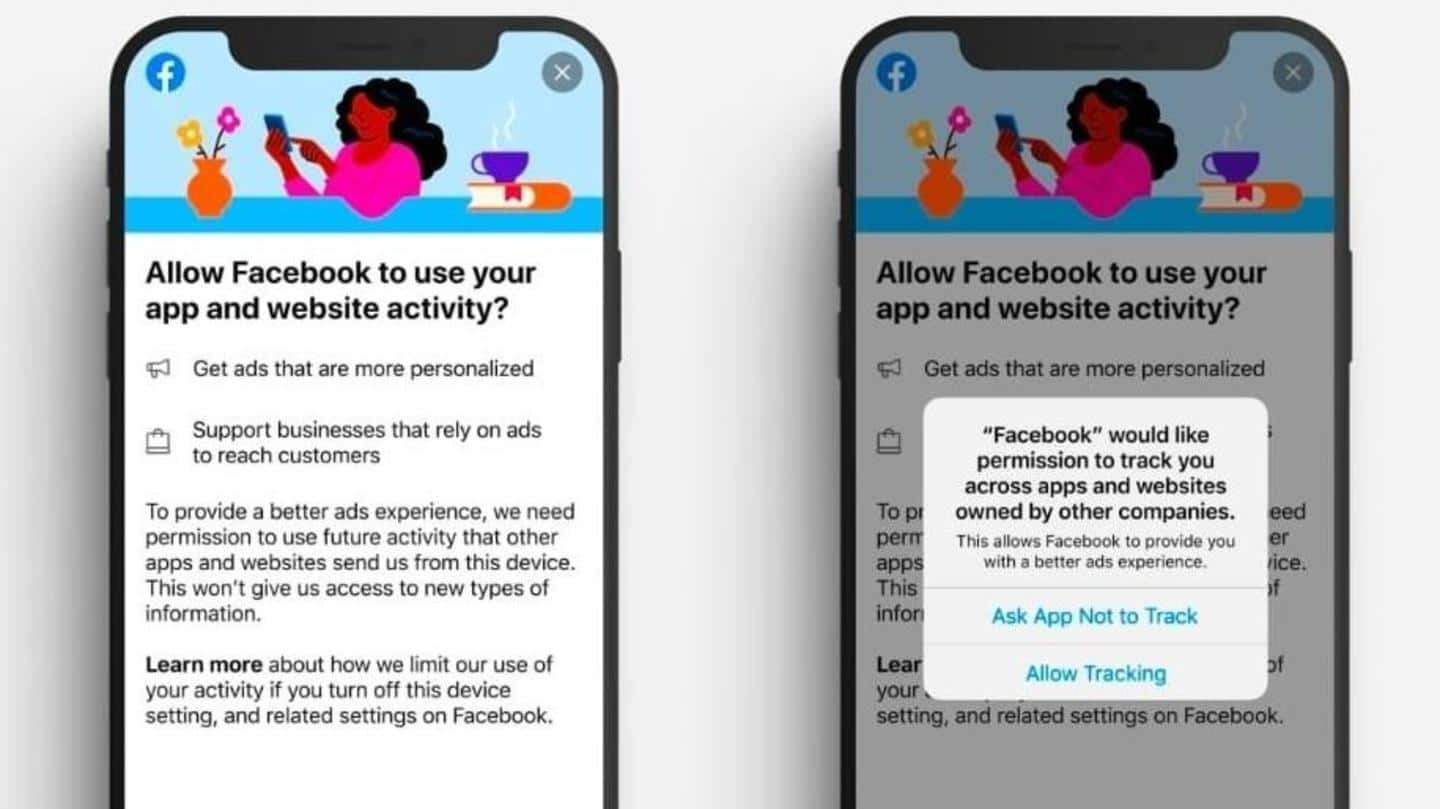
Here's how Apple is going after Facebook, Google's bottomlines
What's the story
Apple seems committed to upending Facebook's and Google's ad revenue models. The iPhone maker is thinking several steps ahead and preemptively plugging loopholes that could be exploited by its Big Tech rivals.
The company has announced that it will reject and ban any app that tries to bribe users with monetary incentives to enable tracking with its App Tracking Transparency (ATT) framework.
Details
ATT is designed to destroy Facebook, Google's ad revenue model
The disruptive move comes after Apple released iOS and iPadOS 14.5, which introduce the ATT framework. It is designed to safeguard user privacy by requiring all apps to request user permission to track them across other apps and websites.
The privacy feature throws the proverbial spanner in the works for Facebook and Google, which use tracking features to make their ad revenue model work.
By the book
Apple lays ground rules for app developers through policy updates
Soon after ATT went live, Apple has made a new addition to its Human Interface Guidelines developer reference manual.
A new section titled Accessing User Data outlines design policies and best practices, which apps must follow while accessing user's personal data or privacy centric device capabilities such as microphone and camera.
It also lays down the rules concerning tracking users across apps and websites.
No mercy
Developers incentivizing users to enable tracking will be punished
It is through such documentation that Apple has warned app developers against incentivizing users to enable app tracking with monetary benefits.
Furthermore, apps aren't allowed to withhold functionality if users refuse to enable app tracking. In other words, Facebook and Google have been left with no means to compel users to opt into their advertising models.
Quote
Developers cannot compel users to opt-in by withholding features
"Don't offer incentives for granting the request. You can't offer people compensation for granting their permission, and you can't withhold functionality or content or make your app unusable until people allow you to track them," reads Apple's revised documentation.
Airtight scheme
Apple even warns developers against using UI/UX design trickery
The thoroughness of Apple's anti-advertisement measures is quite remarkable. The developer guidelines even prevent apps from using UI/UX design elements and social engineering to trick people into opting into tracking.
Apple makes it clear that app developers cannot mimic the ATT prompt with custom messages mirroring it. It even disallows creating in-app UI elements that mimic the "Allow" button to ensure users aren't tricked.
Quote
Apple disallows apps from tricking users into enabling app tracking
"Don't display a custom message that mirrors the functionality of the system alert. Don't show an image of the standard alert and modify it in any way. Don't draw a visual cue that draws people's attention to the system alert's Allow button," warns Apple.
Checkmate
ATT compliance makes user tracking an opt-in feature
The new framework mandates all iOS apps to present users with a conspicuous pop-up asking them to confirm whether or not they would prefer being tracked. Users are specifically shown prompts for "Ask App not to Track" and "Allow" in the pop-up.
Apps simply will not be authorized to be distributed through Apple's App Store unless they present users with this opt-in model.
Critical strike
ATT sounds the death knell for Facebook, Google's ad model
If Facebook and Google cannot track users across other apps and websites, it becomes near impossible for them to learn user behavior to serve relevant ads or even provide advertisers with relevant metrics to justify ad spending.
No one likes ads, so making app tracking an opt-in feature is certain to ensure no one willingly signs up for the benefit of Google and Facebook.
Desperate measures
Facebook hasn't taken Apple's ATT gambit too well
Not surprisingly, Facebook had a rather adverse reaction to Apple's cutthroat move. The social media website ran front-page newspaper advertisements decrying Apple's decision and tried to convince readers how it is anti-small business.
Needless to say, that's a hard pill to swallow considering how Facebook itself destroyed small businesses with its predatory advertising practices.